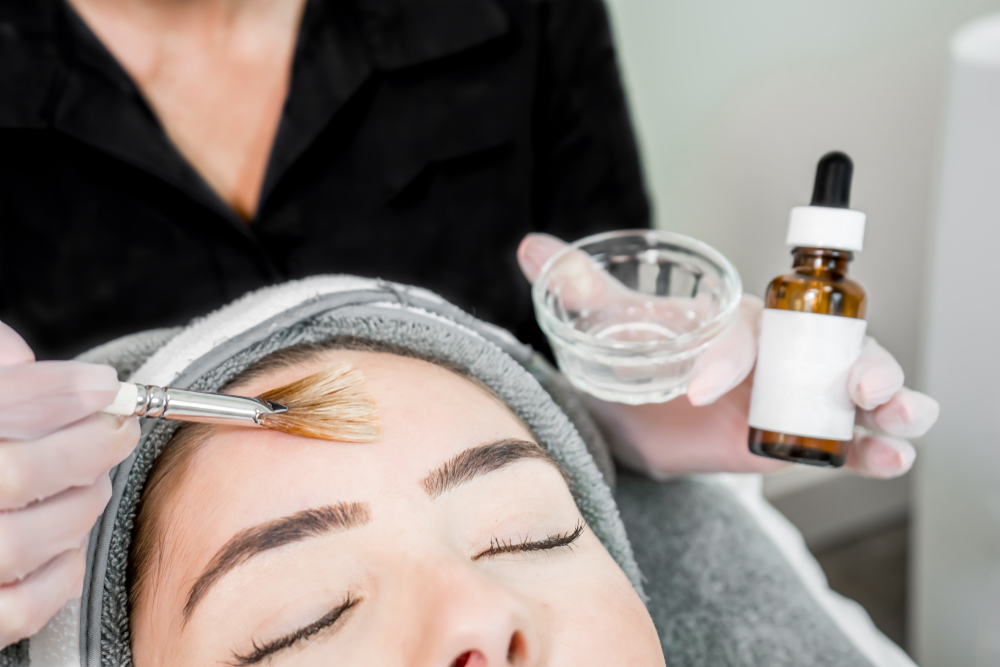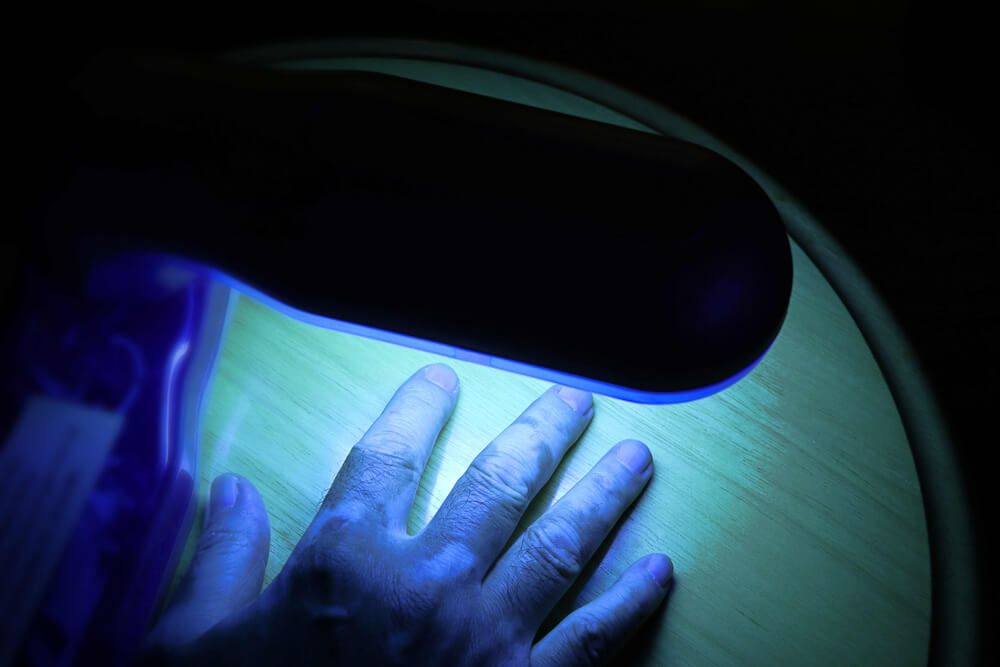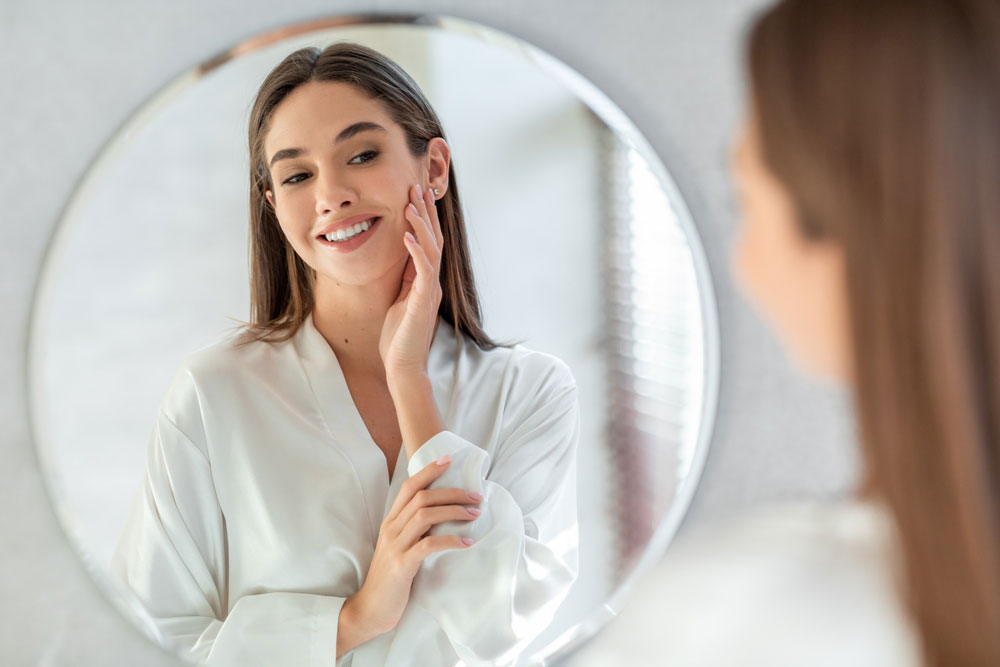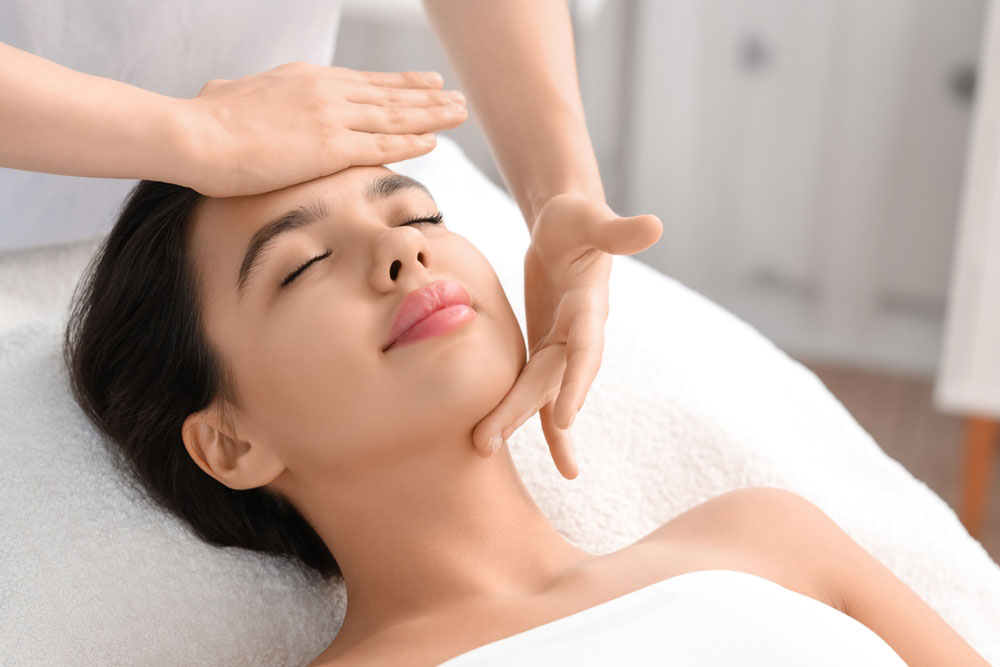Chemical peels are a popular cosmetic procedure that can improve the appearance of your skin. They work by removing the top layer of skin, revealing the fresher, younger skin underneath. Chemical peels can be used to treat a variety of skin concerns, including acne, wrinkles, sun damage, and age spots.
What is a Chemical Peel?
There are many different types of chemical peels, each with its own unique benefits and drawbacks. The most common type of chemical peel is the glycolic acid peel. Glycolic acid is a type of alpha hydroxy acid (AHA) that exfoliates the skin. It can help to improve the appearance of fine lines and wrinkles, acne scars, and sun damage.
Other types of chemical peels include:
- Trichloroacetic acid (TCA) peels: TCA peels are stronger than glycolic acid peels and can produce more dramatic results. They are often used to treat severe acne scarring and deep wrinkles.
- Jessner’s peel: Jessner’s peel is a combination of salicylic acid, lactic acid, and resorcinol. It is a gentler peel than TCA peels, but it can still produce effective results.
- Retinoic acid peels: Retinoic acid is a type of vitamin A that can help to improve the appearance of sun damage, wrinkles, and acne. Retinoic acid peels are often used to treat sensitive skin.
Chemical peels are a safe and effective way to improve the appearance of your skin. However, it is important to note that they are a medical procedure and should only be performed by a qualified dermatologist.
Dr. Navin Arora of Borealis Dermatology is a board-certified dermatologist who specializes in chemical peels. He has extensive experience performing chemical peels and has helped countless patients achieve their skin goals. Dr. Arora uses a variety of chemical peels to treat a variety of skin concerns. He will work with you to determine the best type of chemical peel for your individual needs.
If you are interested in learning more about chemical peels, please contact Borealis Dermatology. Dr. Arora will be happy to answer any questions you have and help you decide if a chemical peel is right for you.
Benefits of Chemical Peels
Chemical peels offer a number of benefits, including:
- Improved skin texture: Chemical peels can help to improve the texture of your skin by removing the top layer of dead skin cells. This can reveal smoother, softer skin underneath.
- Reduced acne scarring: Chemical peels can help to reduce the appearance of acne scars by stimulating collagen production and promoting cell turnover.
- Reduced wrinkles and fine lines: Chemical peels can help to reduce the appearance of wrinkles and fine lines by stimulating collagen production and plumping up the skin.
- Faded sun damage: Chemical peels can help to fade the appearance of sun damage, such as age spots and freckles.
- Even skin tone: Chemical peels can help to even out the skin tone by removing dark spots and blemishes.
Risks of Chemical Peels
Chemical peels are a safe procedure when performed by a qualified dermatologist. However, there are some risks associated with chemical peels, including mild skin irritation and hyper & hypo pigmentation. Dr. Navin and his staff have years of experience providing chemical peel rejuvenation and can discuss your risks before your appointment. If you are not the right candidate for a chemical peel, there are plenty of alternatives that may work for you.
Recovery Time
The amount of recovery time needed after a chemical peel depends on the strength of the peel. Mild chemical peels may only require a few days of recovery, while stronger chemical peels may require several weeks of recovery.
Aftercare
After a chemical peel, it is important to follow your dermatologist’s aftercare instructions carefully. This may include avoiding sun exposure, using sunscreen, and applying moisturizer.
Chemical peels are a safe and effective way to improve the appearance of your skin. They can be used to treat a variety of skin concerns, including acne, wrinkles, sun damage, and age spots. If you are interested in learning more about chemical peels, please contact Dr. Navin Arora of Borealis Dermatology. Dr. Arora will be happy to answer any questions you have and help you decide if a chemical peel is right for you.







